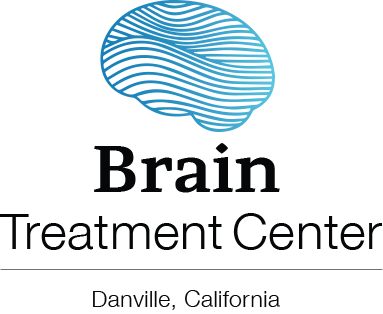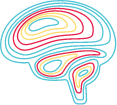
Parkinson’s
Exploring an Alternative Treatment for Parkinson’s
While Parkinson’s is a progressive condition, it is possible to see improvements in symptoms and delay progression.
In patients who have Parkinson’s disease, specific neurons in the brain begin to break down and die. Many symptoms of Parkinson’s occur because of the loss of neurons that produce a chemical in the brain called dopamine. These declining levels of dopamine cause abnormal brain activity, which then manifests in Parkinson’s disease. Parkinson’s is progressive, and currently, there is no cure. However, there are medications that can improve symptoms.
Parkinson’s Symptoms
- Tremors are most common, usually starting in the hands or an arm or leg, and occur even when the body is at rest.
- Rigid muscles can limit movement anywhere in the body and also cause pain.
- Slowed or impaired movement can make simple tasks more difficult and time-consuming. Steps when walking can become shorter and disjointed, and it can be hard to do everyday tasks like getting out of a chair or going to the bathroom.
- Balance issues.
- Stooped posture.
- Decrease in automatic movements such as blinking or smiling.
- Speech can become monotone. The patient may slur, or talk faster or slower than normal.
- Difficulty with writing.
- Depression, anxiety, and fear.
- Sleep disorders such as insomnia and/or sleeping during the day.
- Generalized fatigue.
- Incontinence or difficulty urinating.
- Constipation (digestion is slower).
- Changes in blood pressure with movement, such as a sudden drop in blood pressure when going from a sitting position to standing.
- Dysfunction with the sense of smell such as no longer being able to identify some odors.
- Generalized or specific pain in various areas of the body.
- Cognitive issues such as dementia usually occur in the later stages of the disease. Lewy Body dementia, which can cause hallucinations, is a common type of dementia experienced by Parkinson’s patients.
- Chewing, eating, and swallowing problems can occur as the disease progresses due to slowed muscle movements.
- Breathing problems.
The causes of the disease are unknown. However, both genetics and environment can play a role. Some gene mutations can cause Parkinson’s, but these are rare, and usually only seen when many people in a family have the disease.
Conventional Parkinson’s Treatment
Many medications are used to help control various Parkinson’s symptoms. There are no dopamine supplements or prescriptions because dopamine that’s given directly doesn’t enter your brain where it’s needed. However, some medications mimic dopamine effects in the brain. And the longer you take these drugs, the more likely they can stop working consistently.
MeRT
Here at Brain Treatment Center in Danville, we offer MeRT for Parkinson’s. This is a unique version of TMS (Transcranial Magnetic Stimulation), with a far more individualized approach to brain modulation. We tailor treatment to the patient’s needs based on frequency, location, and magnetic power used. TMS modulates the brain’s electrical activity by using magnetic fields which pass through the scalp from an electromagnetic coil. This process is non-invasive and painless. Research studies show that this type of treatment is promising for Parkinson’s.
Most TMS treatments deliver stimulation to one area of the brain at a fixed frequency for all patients. MeRT, however, is more evolved. We carefully analyze a patient’s initial testing as to the brain’s pattern of function and activity. We then use this information to devise a highly personalized protocol for each patient, with the purpose of encouraging improved brain communication. Patients have indicated that they have experienced significant clinical improvements.*
Treatment for Parkinson’s usually lasts four to eight weeks, but can be ongoing. Appointments are 30 to 45 minutes long, Monday through Friday. Generally, the patient will begin to notice improvements during the first week.
While the FDA has cleared the equipment used for MeRT in the treatment of depression that has been resistant to medications, it may also be used off-label for other disorders in the practice of medicine.
Studies have shown altered brain wave oscillations in patients suffering from conditions such as Major Depressive Disorder (MDD), Autism, Traumatic Brain Injury (TBI), Post-Traumatic Stress Disorder (PTSD), Anxiety, and more. MeRT treatment protocol uses a magnetic field to balance and stimulate brain function. The technology involves using sophisticated diagnostics and imaging to customize the treatment for each individual. We then tailor a personalized protocol based on the location, frequency, and amount of power used by the magnet, specific to each person’s unique condition. As a result, MeRT can improve brain communication and synchronization and can lead to significant and long-lasting improvements.
Much of the initial MeRT research has been done by the U.S. Department of Defense for veterans returning from combat. There is an article that was published in Defense One that further explains the DOD’s research and the benefits that MeRT has been shown to have on people suffering from TBI, PTSD, and MDD. Additional studies have been completed in the private sector on other conditions.
MeRT Treatment for Parkinson’s: What to Expect
For the initial analysis, you will come in for a comprehensive testing appointment. We will gather your new patient paperwork and then our neuro technician will perform a qEEG and EKG, which will enable us to identify any dysfunction or communication problems in your brain.
This appointment usually takes about 45 minutes. Should you decide to proceed with treatment, we will schedule your assessment period. Your second appointment is also 45 minutes long. During this time, you will meet with a provider for a clinical evaluation. The provider will answer any questions you may have and discuss your applicable treatment plan.
Assessment Period
The assessment period of treatment lasts for two weeks, and will help you, and us, determine how you are responding to treatment. At the end of the assessment period, we will perform a second qEEG to note any changes occurring in your brain.
The first week will be Monday through Friday, and the second week, Monday through Thursday, nine sessions in total, followed by a repeat qEEG to determine progress.
Continuing Treatment
Once the assessment period is complete, and we are seeing progress both clinically and on the qEEG, we will schedule subsequent two-week treatment periods.
The comparison between the initial and second qEEG/clinical evaluation will determine if you are responding. You should also start to experience changes in the way you are feeling during this time. We highly advise a total of six weeks of treatment (which includes the assessment period) for optimal and long-lasting results.
Since each brain is unique, the protocol will be different for each patient as it is based on specific qEEG/EKG data from your brain, and the specific condition being treated. Generally, the results of treatment can last a lifetime, though some people prefer occasional follow-up treatment as needed. But each person is different, and protocols may vary. Your provider will have regularly scheduled follow-up EEGs and meet with you to gauge your progress.
Additional Information
A typical treatment session takes about 45 minutes. You will sit in a chair while the neuro technician administers the treatment near the scalp via a magnetic coil. The gentle magnetic impulses are delivered for six to eight seconds each minute. You may feel a slight sensation while the treatment is occurring, but it is not painful or uncomfortable.
Please note that results and improvements are based on active and strict observation of our regimens. Results may vary based on the individual users and are not guaranteed. Additionally, the results of therapy can vary per individual. In general, the longer the length of MeRT therapy, the longer the changes remain.


